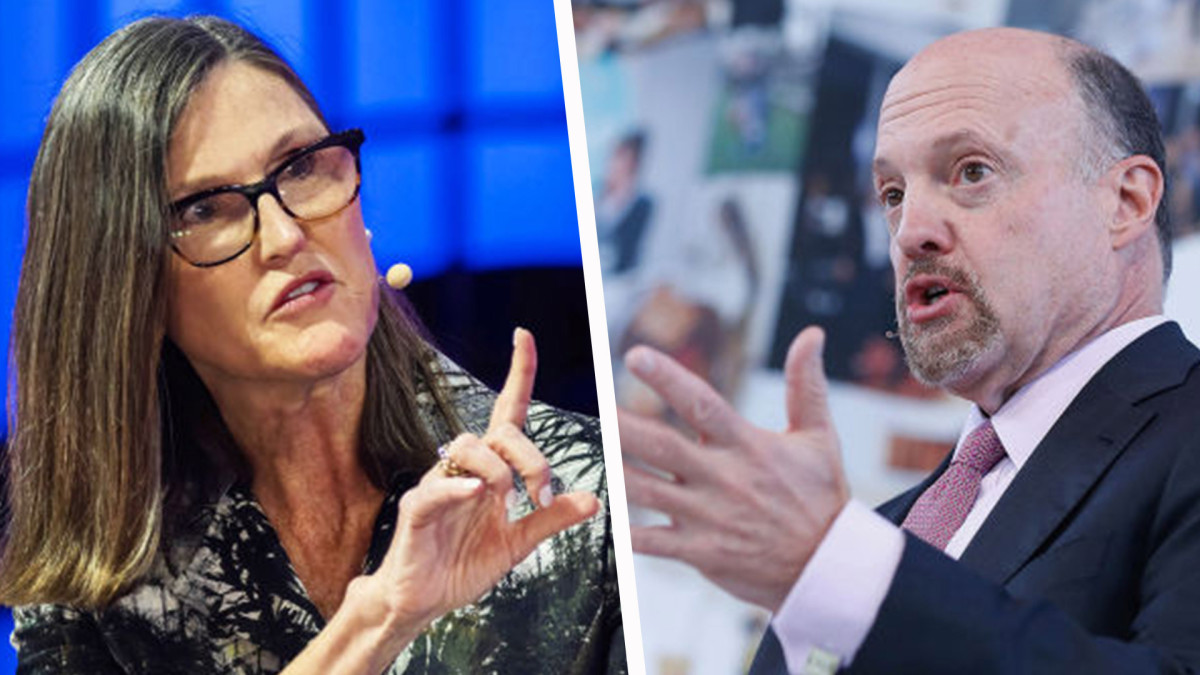
Fast Facts
- CNBC's Jim Cramer openly criticized fellow investor Cathie Wood in a tweet
- The two disagree about the future of EVs
- The exchange comes alongside more disappointing Tesla news
For the last few years, one of Tesla's (TSLA) biggest cheerleaders has been Ark Invest CEO Cathie Wood.
It was easy to bet big on the EV company in the past, as Tesla stock soared above $400 back in 2022.
Related: Analysts see big strategy shift from Elon Musk after Tesla delivery debacle
But since CEO Elon Musk started to announce price cuts last year, investors and analysts alike found themselves souring on the once-popular company, which has slumped 33% since the beginning of 2024.
"Tesla's March-quarter delivery numbers in fact showed the biggest non-pandemic decline in more than 10 years, with just under 387,000 units handed to customers over the three month window," TheStreet's Martin Baccardax wrote.
Wood has continued to extoll Tesla's future plans, saying as recently as February that she expected the launch of the company's upcoming budget model to "boost Tesla's addressable market 10-fold."
As Wood continues to preach the EV gospel, she's drawn her fair share of criticism — and now her newest critic is none other than "Mad Money" star Jim Cramer.
"Cathie Wood making bold claims about 80% of vehicles being EV in just a few years ... I thing this PAINFUL..." Cramer wrote on X on the morning of Apr. 3.
Cathie Wood making bold claims about 80% of vehicles being EV in just a few years .. I thing this PAINFUL...
— Jim Cramer (@jimcramer) April 3, 2024
While Cramer's sentiment clearly got ahead of his spelling, the sentiment still rings clear: the EV future automakers are striving for is not going at the rate they might have hoped.
The EV market situation
For Tesla itself, the problems could be attributed to anything from the slowing demand for EVs to Elon Musk's continual metamorphosis into a right-wing MAGA devotee.
But the problem is also much bigger than Tesla. Slowing demand has been ramping. A 2023 report from S&P Global Mobility shows that affordability is still the biggest factor keeping consumers from buying an EV, alongside range anxiety and the availability of charging networks outside major cities.
EV sales grew 50% in 2023, hitting 1 million units for the first time — but more than half of that number was Tesla. This shows how heavily buyers have been influenced by the company's lead in the market, as well as how Tesla's struggles could affect the way they perceive EVs on the whole.
Related: Tesla bull lowers price target, says negativity is 'warranted'







